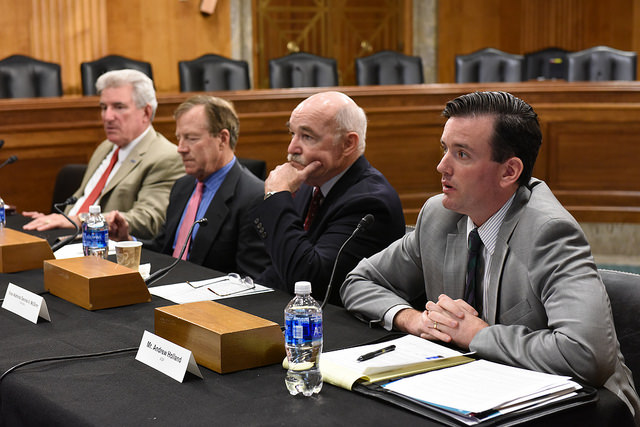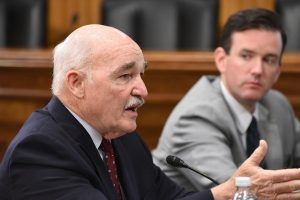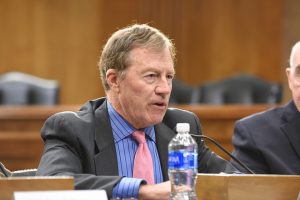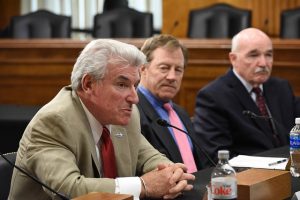
Event Recap: Hill Briefing on Climate Change and the Risks to National Security
On April 27th, the American Security Project (ASP) and the Center for Climate & Security held a briefing on Capitol Hill discussing climate change and its implications for national security. The panel included Vice Admiral Dennis McGinn, USN (Ret.), BGen. Stephen Cheney, USMC (Ret.), and BG David McGinnis, USA (Ret.). The discussion was moderated by ASP’s Senior Fellow for Energy and Climate, Andrew Holland.

Vice Admiral Dennis McGinn, USN (Ret.)
Admiral McGinn began the conversation by explaining what climate security is, and the potential impacts it may have on U.S military installations and missions around the world. One such example was increased flooding of Norfolk Naval Base, where sea level rise interrupts training and detracts from military readiness. This effectively demonstrates how climate change presents risks for U.S. national security.

Brigadier General Stephen A. Cheney, USMC (Ret.)
General Cheney expanded the discussion to the international security threats of climate change. Specifically, he discussed the global security implications of climate change in areas such as Bangladesh where a slight rise in sea-level will flood an area inhabited by millions of people, thus forcing a mass exodus that will put tremendous stress on our allies in Europe. Additionally, he discussed one of the most clear cut examples of climate security; the Syrian civil war and the Arab Spring. As ASP has shown, the political unrest, which manifested in the Arab Spring, was directly tied to increasing global food prices. These food prices were sent skyrocketing because of a wheat shortage, which developed due to extreme weather events linked to climate change. While climate and related spikes in food prices weren’t the only factors that lead to the Arab Spring, they were significant “threat multipliers.”

Brigadier General David McGinnis, USA (Ret.)
Finally, General McGinnis spoke on a range of issues, one of particular note was the role of the National Guard. Climate change affects the availability of food and water, human migration, and competition for natural resources, the National Guard’s unique capability to provide logistical, material, and security assistance on a massive scale or in rapid fashion is essential to dealing with the effects of climate change.
The discussion ended with a series of questions, many of which were focused on the energy sector and future of fossil fuels and renewable energy. The panelists were asked to comment on potential contributions the scientific community could provide to assist America’s energy sector. This prompted General Cheney to discuss the question of fusion energy and how if it can be harnessed, it would provide the perfect energy source.
The entire discussion can be found in the video below:






